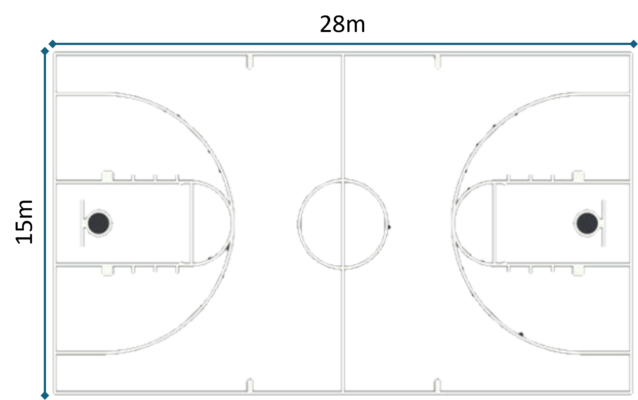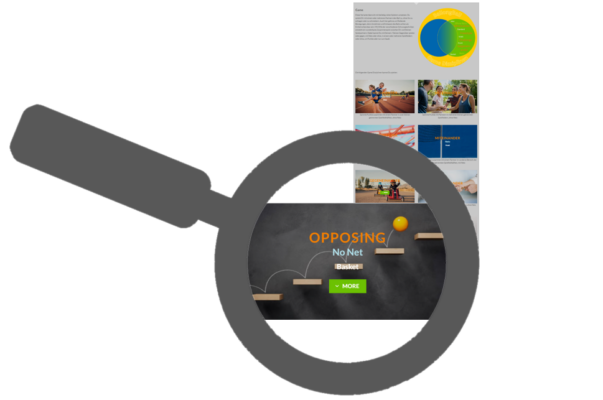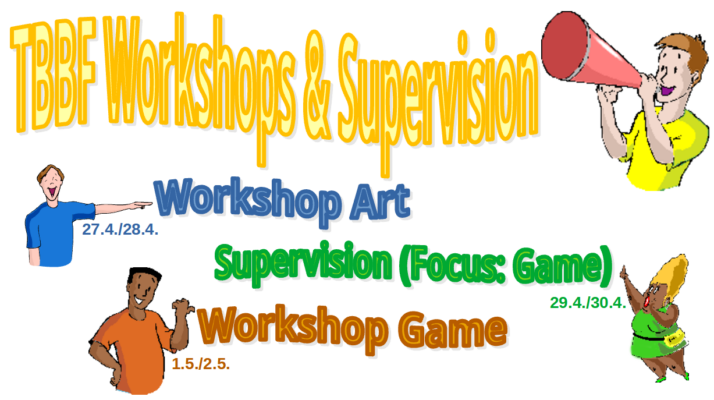You need two teams and a court. Your team’s goal is to score more baskets than your opposing team. You use your rackets to swing the ball into the opponent’s court half and finally into the basket. The team scoring the most baskets within 60 minutes wins.
Basket
Your team consists of 5 players and competes against another team on a basketball court. You have 4 x 15 minutes to score more baskets than the opposing team. During your offense, the opposing players stay in place. Play around them and then into the basket to score a point. If you do not hit the basket, move out of bounds or touch an opponent, the opposing team gets the ball and it’s their turn.
basket
You may be familiar with Basketball – your team is trying to score more points than the opposing team. You have four quarters of 15 minutes each to do so. The moment your team’s offense has started with a serve from the side line, the opposing players freeze on their spots – they may no longer move until your offense is over. This may happen by either your team scoring, a player of your team stepping out of bounds with the ball, any of your players loosing the ball / touching any player of the oppsing team or your team failing to hit the basket. If your ball either touches the board, the hoop or its net, then your team gets another try – you serve again from the sideline and get to retry. You have up to 2 retries.
Rules
Each team has 5 players. The team scoring the most baskets (one basket equals one point) during the game wins. The game is played 4×15 minutes, with 5 minute breaks between the quarters. The draw decides which team is in the offense, initially.
The game begins with a serve. Both teams are in their courts halfs at the time of the serve. The ball is served behind the outline on the back of the basket by a player of the attacking team. As long as no court player has received the ball, all players can move freely in their own half of the court. The player receiving the ball in the court shouts “Freeze” as soon as the ball is on his racket blade. From this point on, all defending players are not allowed to move for the rest of the current offense – no further steps and no movements of the arms or hands, etc..
The attacking team can approach the opponent’s basket by passing. The player with the ball may take a maximum of one step when in possession of the ball. Holding the ball on the racket is not permitted – the ball must be passed to a teammate immediately after it is received in a BailongBall conforming swing. Any body or racket contact with an opponent, whether by the ball handler or one of his teammates, is penalized as a foul. Fouls automatically end the attack and result in the opposing team gaining control of the ball.
Every foul, as well as every error, such as the ball being out of bounds, travelling, etc., results in the opposing team receiving and serving the ball from the sideline at the level where the foul or error was committed. Again, the ball receiving player shouts “freeze”, which causes all defending players to immediately stop their movements until the end of the attack.
In addition to fouls and errors, basket / scoring attempts that do not hit the board, hoop or net also result in the opposing team gaining possession of the ball. If the attacking team hits the board, hoop or net, but the ball does not pass through the hoop from above, the attack is stopped. The attacking team is then allowed to make another attempt at the basket and starts with a serve from the side line. Here, too, all players can move freely until the serve has been received by a court player and “freeze” has been called. All defending players then immediately stop moving until the end of the attack. If the board, hoop or basket is hit again without a basket being scored, the attacking team is given a third and final chance for its current offense.
During an attack, the defending team may neither block nor cover the opening of the basket / the space above the ring (e.g. by holding a racket in front of or above the basket).
If an attack is successfully completed, the ball switches to the opposing team, which serves from behind the outline on the back of their basket. As before, the “freeze” of the player receiving the ball causes the defending players to stop their movements immediately.
The game is controlled by 2 (equal) referees.
Depending on the skill level, the game can be played in different variations, which can vary according to court type/size, number of players, racket type, basket type and game length.
The Court
- Court size (28m long and 15m wide) and ring height (3.05m) comply with official basketball standards
- The entire court should be free-standing within a radius of at least 1m
- The ceiling height must be at least 6m
- All lines must be at least 2cm thick
- The center line divides the court into two equal halves
General Rules
Scoring
Fouls
Errors
- Balls that are swung non BailongBall comformingly (carrying, lifting, flicking, thrusting)
- Balls that land outside the court boundaries or touch an object outside the court, such as a wall (out ball)
- Balls that touch something other than the racket blade, the board of the basket, its hoop or the net (e.g. clothing, body parts, basket stands, etc.)
- Balls touched by a player (with his racket) who is on the out-of-bounds line or with one or both of his feet partially or completely out-of-bounds
- Balls where the racket touches the ground when swinging
- Balls where the player takes more than one step when in possession of the ball (ball is on the racket)
- Balls that land directly on the same racket after leaving the racket and not on the racket of a fellow player
- Balls where the acceleration distance or the swing path is more than 360°
Serve
Upon the signal / whisteling by the referee, the player serves into the court.
The serving player stands behind the outline, one foot must stay in contact with the ground. One hand throws the ball clearly high and towards the back, whereby the ball must cover a distance of at least 30 cm. The other hand lets the ball in with the racket. Only the high and low serve (high forehand and backhand) is permitted. The serve movement must not be interrupted and must be BailongBall conforming (e.g. no carrying / lifting / flicking / thrusting).
Updates and Blogs
Here you can find updates and blog posts covering these disciplines.
Updates & Blogs
 Deutsch
Deutsch






